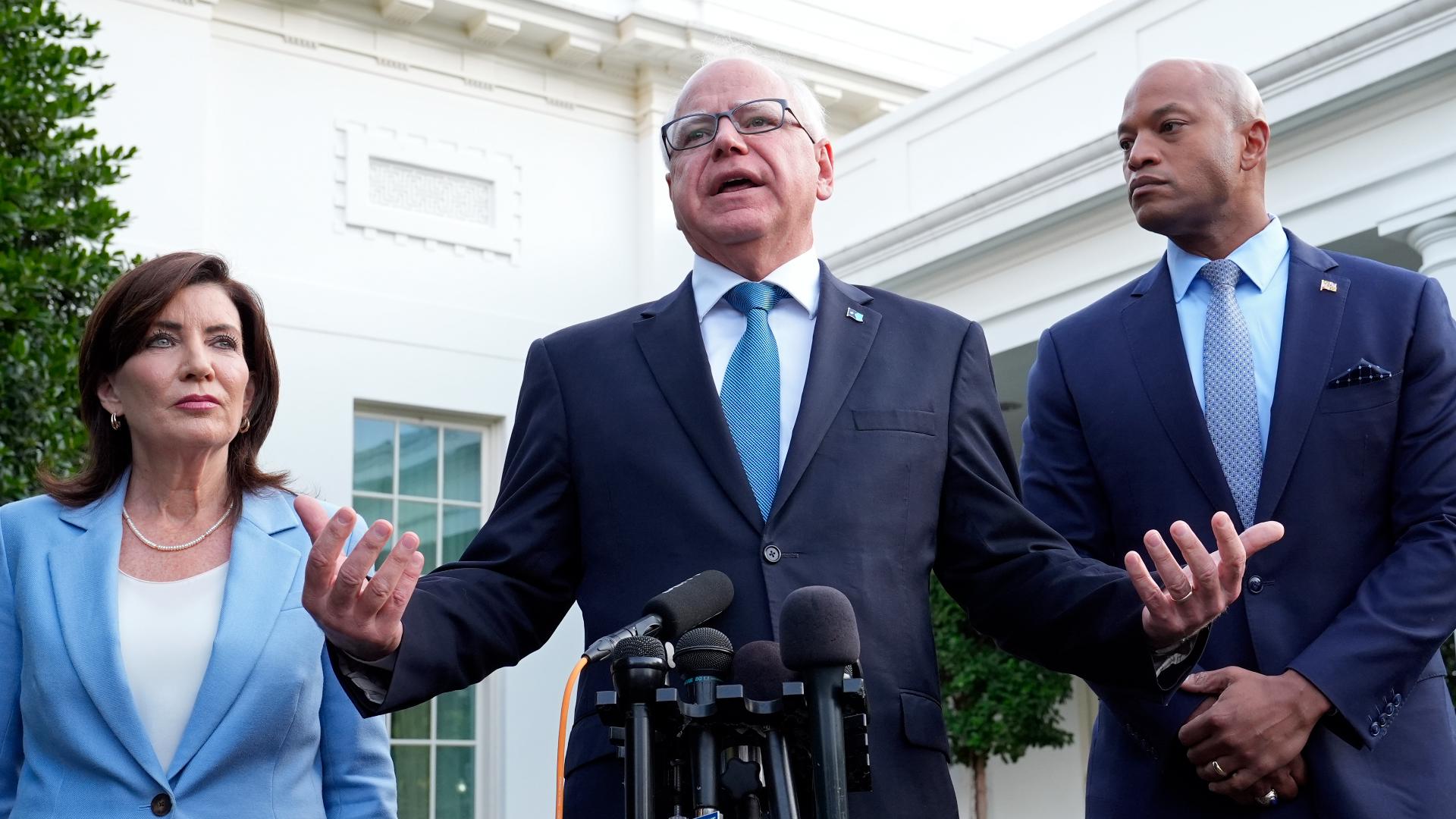![3 questions for 2016 presidential race[ID=78198260] ID=78198260](http://kare-download.edgesuite.net/video/1465060/1465060_Still.jpg) ST. PAUL, Minn – With the new year bringing a presidential race, David Schultz, political science professor at Hamline University in St. Paul, offers three important questions for voters to consider in the short term, and as the 2016 presidential campaign heats up next fall.
ST. PAUL, Minn – With the new year bringing a presidential race, David Schultz, political science professor at Hamline University in St. Paul, offers three important questions for voters to consider in the short term, and as the 2016 presidential campaign heats up next fall.
1. "Is Donald Trump for real?"
Schultz: "The real interesting question now in the short term is: Is Donald Trump for real?"
"Clearly, one of the big stories for 2015 was the Donald Trump phenomenon, if we were to have this talk six months ago and say is Donald Trump a contender for the presidency, most of us would have scoffed and said 'no'. He has increased his lead in Republican polls in the past few months despite the fact everybody has been expecting him to implode, despite his comments about women,
"Trump has run a really good name recognition media driven campaign, where he has not spent any money out of his own pocket. But the real issue, is can he actually deliver the votes? Can actually he take that name recognition, those poll numbers, and translate those into delivering people and we are going to find that out on Feb. 1 in Iowa, that is the start of the presidential contest, so Iowa caucuses will be critical for that first question here. If he can actually have a ground game, and get people out to vote, then we know he's real."
2. "Has Hillary Clinton learned from 2008?"
Schultz believes Hillary Clinton needs to mobilize young, liberal Millennial voters much as Obama did in 2008.
Schultz: "I pose that question because take us a month out of the Iowa caucuses back in 2008, everyone was saying Hillary was a slam dunk to win Iowa, New Hampshire and go on to win the nomination."
"There many parallels between her campaign in 2008 and 2016, again her taking the root of being a front runner, taking the root of getting all the major party endorsements, party chairs across the country, running a campaign that's top down. She also has some lingering questions that carry over from 2008, the likeability factor for example, what I call the narrative, her rationale for why she wants to be president of the United States. Has she been unable to overcome some of those problems? Is she a more likable candidate now?"
"Has she also been able to overcome the controversies surrounding her being Secretary of State? For lots of people concerns about Benghazi, emails, or perhaps where was she with ISIS? And so the interesting question will be at this point, is. what has she learned in eight years and can she improve upon that so we don't see another surprise, where a Bernie Sanders comes out of nowhere and beats her."
3. "What states will the candidates be campaigning in after the convention?"
Schultz: "If we go back to 1988, after the convention, there are only about 10 states that really matter after the candidates campaign. I can comfortably right now say the presidential race right now is probably over in 40 states in the United States."
"If, after the convention, we see the Democrat and Republican nominees campaigning in Minnesota for example, the Democrats have a problem, because this is a safe state for the democrats, they have won this every year."
(Schultz's new book, "Presidential Swing States" describes how presidency is won in 10 battleground states, like Florida, Ohio, Virginia, Wisconsin, Iowa and Colorado, all swing states with swing voters.)
Schultz: "The simplest way describing what the presidential election will be in 2016, is with three numbers, 10-10-270. It will be 10 percent of the population, in 10 states who will determine who gets 270 electoral votes. We want to see where those candidates
Schultz cautions voters to look at polls in those key swing states, and not put so much stock in national polling. He estimates $6 billion will be spent on the 2016 Presidential election, with each candidate spending about $1.5 billion to campaign.


